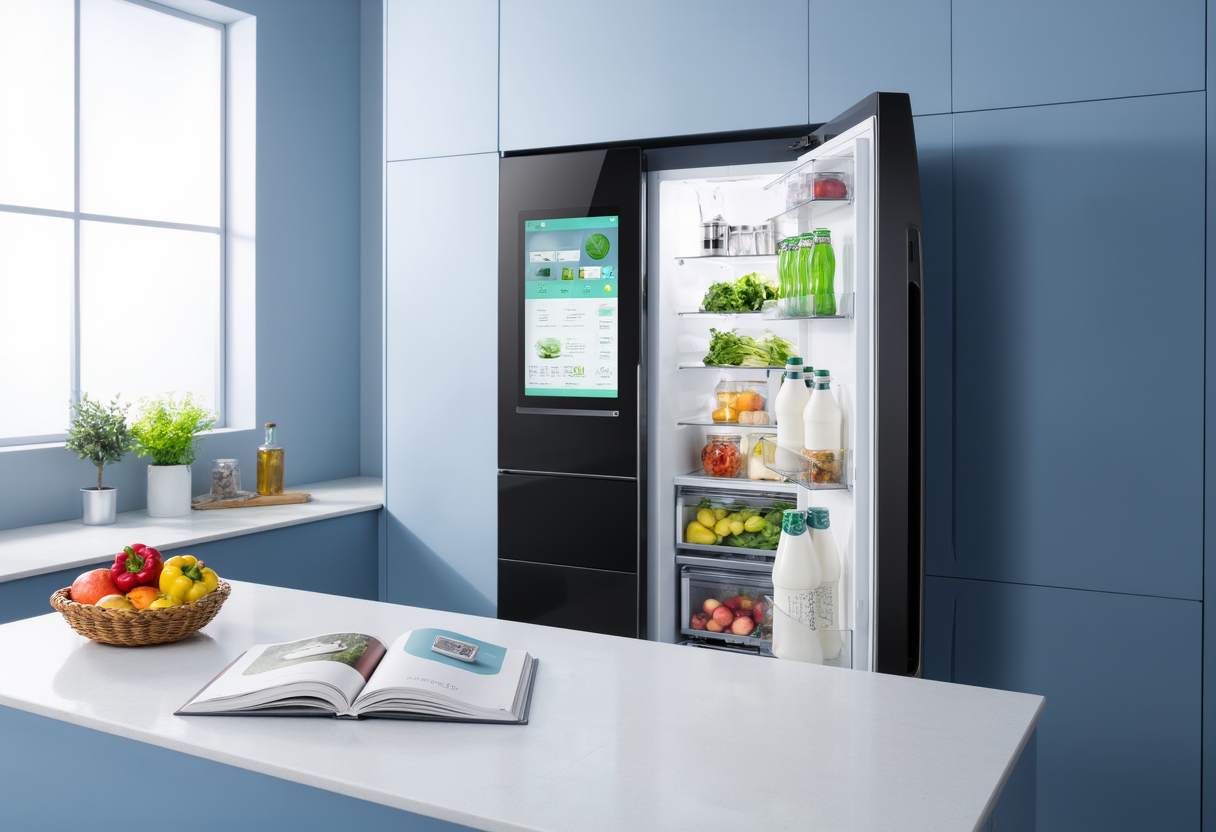The Future of Smart Refrigerators: Will They Change How We Store Food?
Smart refrigerators are leading a significant shift in how consumers manage their food. With innovative features like inventory management, energy monitoring, and recipe suggestions, they offer unprecedented convenience. As these appliances evolve, understanding their impact on daily life becomes essential. This article explores both the technological advancements and user experiences associated with smart refrigerators, highlighting their role in transforming kitchen dynamics and food preservation methods.
The Evolution of Smart Refrigerators
Smart refrigerators represent a major leap forward in kitchen technology, integrating not just cooling mechanisms but also smart technology that enhances user convenience. These appliances are no longer mere cold storage units; they now come with features like touch screens, Wi-Fi connectivity, and integration with smart home systems. Smart refrigerators enable users to monitor the contents of their fridge via mobile apps, making meal planning easier and reducing food waste. Moreover, the fridge can send alerts when items are running low or nearing expiration, addressing a common challenge in household management.
Impact on Food Storage and Management
The introduction of smart refrigerators has fundamentally altered the landscape of food storage and management. No longer do users have to rummage through shelves to find ingredients; with smart inventory management, everything is tracked and displayed at the touch of a button. These advancements not only save time but also encourage healthier eating habits by allowing users to create balanced meal plans based on what they have available. Smart refrigerators are increasingly equipped with advanced sensors that monitor temperature and humidity levels, ensuring optimal conditions for food preservation. Such technology reduces spoilage and extends the shelf life of perishable goods.
The Role of Artificial Intelligence
Artificial intelligence (AI) is a key component in the functionality of smart refrigerators. These appliances can learn user preferences over time, recommending recipes based on the ingredients on hand and personal dietary preferences. By utilizing machine learning algorithms, smart refrigerators enhance the user experience, making cooking more enjoyable and personalized. For instance, if a user frequently purchases certain ingredients, the refrigerator may suggest related recipes, thus promoting culinary creativity. Additionally, AI-enabled systems can analyze energy consumption patterns, helping users optimize their electricity use and potentially lower energy bills.
User Experience: Benefits and Challenges
Adopting a smart refrigerator offers numerous benefits, but it also presents challenges. The convenience of remote management and smart notifications can enhance user experience significantly. However, some users may encounter a steep learning curve when first interacting with such advanced technology. Furthermore, issues related to security arise as these devices connect to the internet, raising concerns regarding data privacy. It is crucial for manufacturers to address these concerns and ensure that user information is protected. User reviews indicate that while the adjustment period can be challenging, the long-term benefits of owning a smart refrigerator often outweigh the initial hurdles.
Societal Implications of Smart Refrigerators
The societal implications of smart refrigerators extend beyond personal use. As households become more technologically savvy, these appliances may help promote sustainable living practices. The potential for reduced food waste, combined with energy-efficient features, positions smart refrigerators as a proactive solution to environmental concerns. Additionally, smart refrigerators can collect data that reveals consumption patterns, providing insights that could drive future innovations and changes in food production. Some experts suggest that as these technologies become more widespread, they could even influence global food distribution systems.
Conclusion: Embracing the Future
In conclusion, smart refrigerators are set to redefine how we store and manage food in our kitchens. Their array of features not only enhances user convenience but also contributes positively to sustainable living practices. As technology continues to advance, smart refrigerators will likely incorporate even more innovative capabilities, reshaping domestic life further. While challenges such as data privacy and user adjustment remain, the advantages of adopting smart refrigerators are substantial. Embracing these advancements could lead to smarter, healthier, and more efficient food management in homes around the world.
